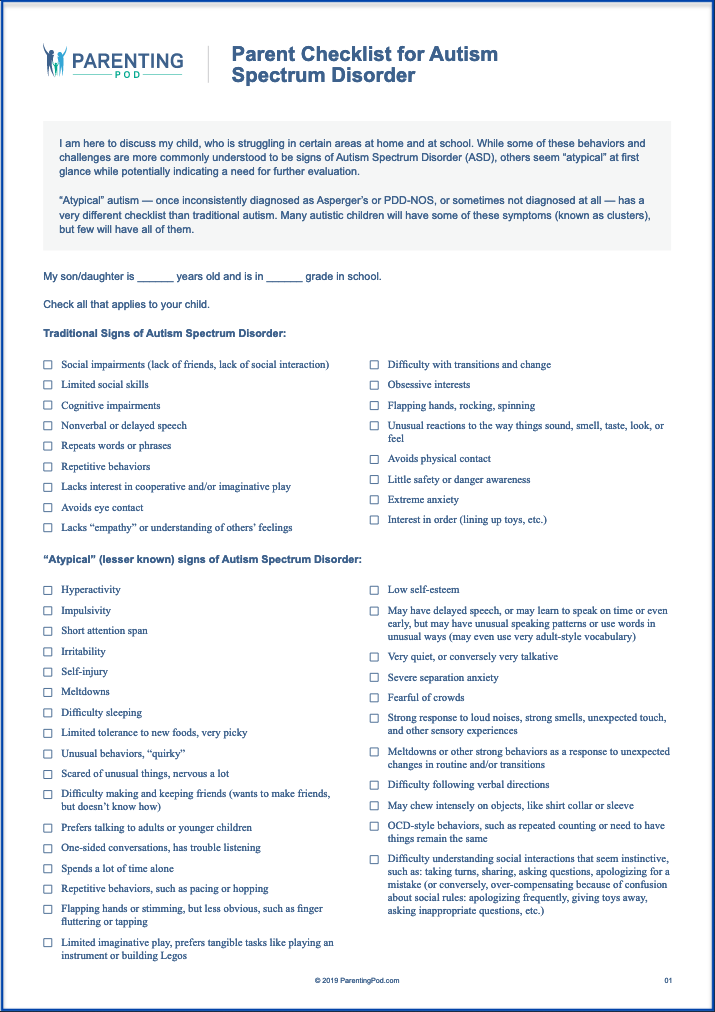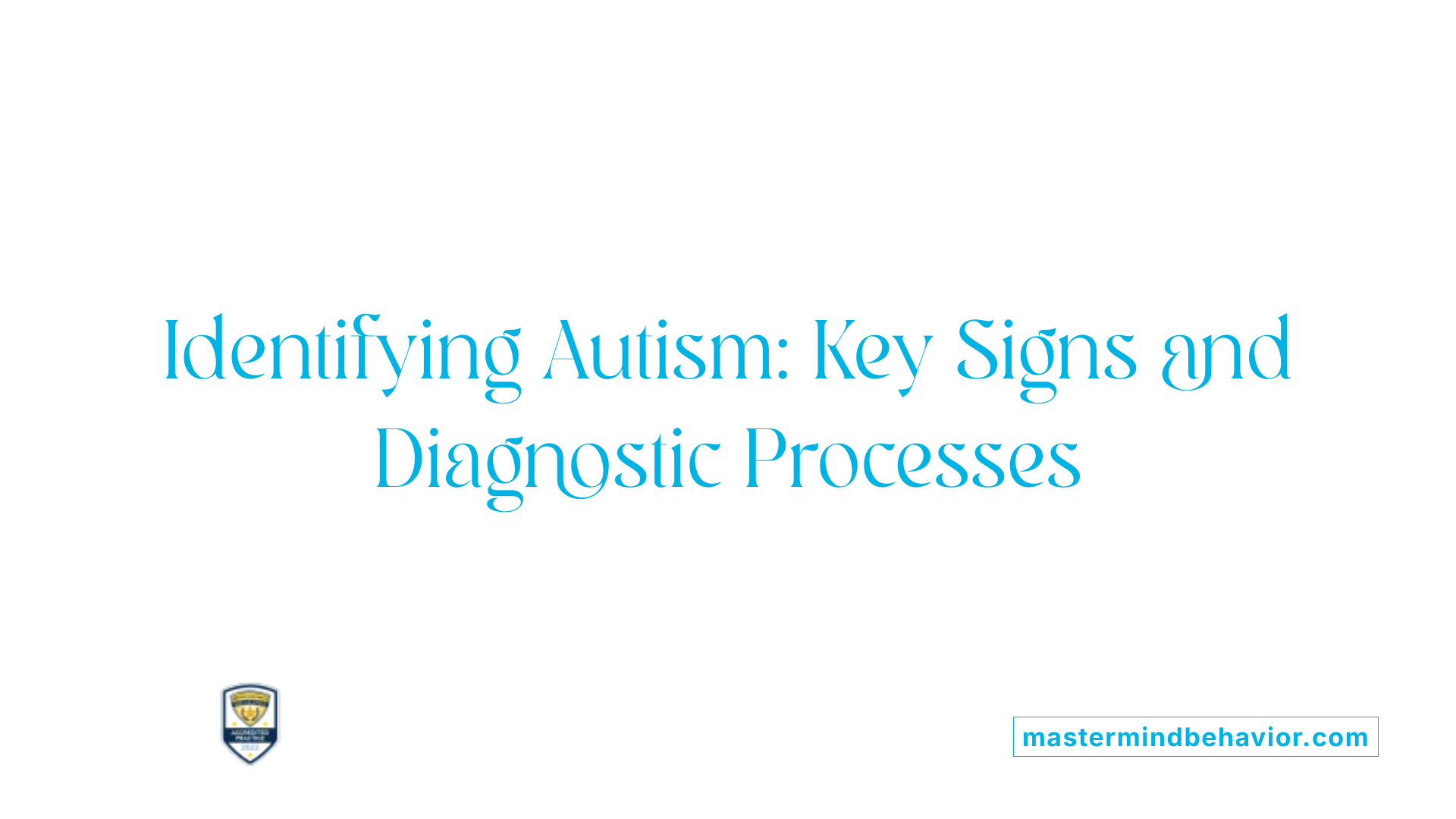Can Autism Spectrum Therapies help with developing independence in teens with ASD?
Can Autism Spectrum Therapies help with developing independence in teens with ASD?
Blog Article
Recognizing the Impact of Behavioral Autism on Every Day Life and Social Communications
You might not recognize how deeply behavioral autism impacts daily life and social interactions. People on the range typically browse a world filled with communication obstacles and sensory overload. These difficulties can lead to stress and seclusion, influencing their connections and general health.
Specifying Behavioral Autism and Its Qualities
Behavior autism, often referred to as autism range disorder (ASD), incorporates a series of problems defined by obstacles in social interaction, interaction, and recurring behaviors. You could notice that individuals with ASD commonly have a hard time to interpret social hints, which can cause misunderstandings in discussions. They may discover it tough to establish eye get in touch with or take part in tiny talk, making social circumstances feel overwhelming.
Interaction problems can show up in different methods, from delayed speech advancement to a choice for utilizing fewer words. Recurring habits, such as hand-flapping or shaking, can serve as coping devices to take care of tension or sensory overload. These attributes can greatly affect day-to-day life, making it crucial for you to recognize and support those with ASD. By recognizing these characteristics, you can foster an atmosphere that promotes acceptance and motivates efficient communication, assisting individuals with autism thrive in their day-to-day communications.
The Range of Autism: Recognizing Variability in Actions
Autism spectrum disorder (ASD) isn't a one-size-fits-all medical diagnosis; it varies commonly among individuals. You might come across individuals who are highly spoken and engage conveniently in discussions, while others might prefer singular tasks or communicate non-verbally.
Additionally, the means individuals with ASD react to sensory input can vary considerably; some may be bewildered by brilliant lights or loud noises, whereas others flourish in promoting environments. The range also consists of differences in social communications; some people may have a hard time to analyze social signs, while others browse social setups with loved one convenience. Understanding this variability is necessary, as it assists you appreciate each person's unique experience and tailor assistance to their specific needs, fostering a more inclusive setting for everybody.
Interaction Challenges Dealt With by People With Autism
When you communicate with individuals on the autism range, you might discover their unique communication difficulties. They often face troubles with both nonverbal and spoken cues, which can influence their social interactions. Recognizing these barriers is necessary for promoting better connections and support.

Verbal Communication Problems
Many people on the autism spectrum experience verbal interaction troubles that can considerably influence their daily communications. You might find it testing to reveal your ideas, sensations, or requires plainly. This can lead to frustration for both you and those around you, as misunderstandings occur. You might battle with initiating discussions, maintaining a topic, or understanding subtleties in speech. Often, you could like utilizing basic language or recurring expressions, which can restrict your ability to participate in much deeper conversations. Your quantity, speed, or tone could not line up with social assumptions, causing others to misunderstand your purposes. Acknowledging these challenges can help you and your assistance network develop approaches to improve interaction and foster much better links with others in your day-to-day live.
Nonverbal Interaction Barriers
Spoken communication isn't the only challenge people on the autism spectrum face; nonverbal communication barriers can be just as considerable. You may discover it challenging to translate body movement, faces, and eye contact, which are vital for effective communication. These difficulties can result in misconceptions or misconceptions of social signs, making communications feel frustrating or complex. You may struggle to share your very own emotions via nonverbal means, leaving others unsure of your feelings or intents. This separate can develop feelings of seclusion and irritation. Identifying these obstacles is crucial for cultivating understanding and compassion in your communications. By resolving nonverbal communication, you can locate strategies to boost your social experiences and enhance your total quality of life.
Social Interaction Influences
Social interactions can commonly really feel overwhelming due to the unique communication challenges encountered by people with autism. Identifying these obstacles can aid you locate techniques to improve communication, such as practicing social skills in secure settings or making use of aesthetic help. Comprehending your requirements permits you to browse social communications with better confidence and convenience.
Social Communication and Relationship Structure in Autism
While building connections can be testing for individuals with autism, comprehending their one-of-a-kind perspectives and communication styles can cultivate significant links. You could observe that lots of individuals on the spectrum prefer direct communication and might fight with social cues or small talk. By being simple in your communications, you can assist develop an environment where they really feel comfortable.
Engaging in shared passions can also serve as a bridge to much deeper connections. Whether it's a hobby, a preferred show, or a shared enthusiasm, these common strings can open doors to relationship.
Day-to-day Live Regimen: Browsing Difficulties and Strategies
Steering day-to-day life routines can be especially testing for people with autism, especially when unexpected adjustments take place. To navigate these difficulties, consider executing aesthetic routines this link or lists.
Establishing a regimen that consists of sensory breaks can additionally be useful. You can intend brief breaks throughout your day to reenergize. It's vital to communicate with those around you, letting them understand your preferences and needs. This aids produce an understanding setting.
Finally, practice mindfulness methods to handle stress and anxiety and anxiety. Easy breathing workouts or grounding techniques can make a considerable difference. By incorporating these methods, you can enhance your day-to-day regimen and minimize interruptions, making life really feel more workable.
Staminas and Capabilities of People on the Autism Spectrum
Recognizing everyday life routines is just one facet of the autism experience. Numerous people on the autism spectrum have amazing strengths and capabilities that establish them apart. You could locate that your interest to detail is extraordinary, allowing you to stand out in jobs that call for accuracy and focus. Your ability to assume outside package can bring about cutting-edge options in numerous circumstances.
Moreover, your memory abilities typically radiate, particularly in areas of rate of interest. Autism Behavioral Therapy. This flair for maintaining information can make you a webpage beneficial source in areas like technology, art, or scientific research. You may additionally show strong visual thinking, enabling you to visualize complicated ideas and resolve troubles artistically
Additionally, your special point of view on the globe can cultivate compassion and understanding in others, enriching social interactions. Accepting these strengths not only improves your confidence yet likewise aids others value the varied talents you bring to the table.
Producing Inclusive Environments for Individuals With Autism
Developing inclusive environments for people with autism begins with creating sensory-friendly rooms that deal with their unique requirements. You can also cultivate possibilities for social interaction, helping to construct relationships and links. By making these changes, you'll contribute to a much more inviting atmosphere for every person.
Designing Sensory-Friendly Spaces
While designing sensory-friendly spaces, it's important to reflect on the special requirements of individuals with autism. Incorporate silent zones where individuals can charge and pull back when overwhelmed. Consist of aesthetic timetables or clear signs to aid individuals browse the area confidently.
Promoting Social Communication Opportunities
Designing sensory-friendly spaces not just addresses specific comfort however also sets the phase for meaningful social communications among individuals with autism. To promote these communications, create inclusive environments that invite engagement. Organize organized activities, like art classes or team games, that urge collaboration without overwhelming sensory input. Usage visual aids and clear communication to help everyone engage conveniently. Urge peer mentoring, coupling people with autism with helpful peers who can direct them through social scenarios. In addition, consider organizing normal community events that celebrate neurodiversity, fostering approval and understanding amongst all individuals. By carrying out these techniques, you can boost social chances, helping individuals with autism develop relationships and strengthen their social skills in a safe, welcoming atmosphere.

Regularly Asked Questions
Exactly How Can Friends Assistance A Person With Behavioral Autism?
You can sustain a friend with behavioral autism by being person, paying attention proactively, and valuing their limits. Take part in tasks they enjoy, connect honestly, and develop a comfortable environment where they really feel valued and understood.
What Resources Are Offered for Parents of Kid With Autism?
You can discover different sources for parents of children with autism, consisting of support system, instructional internet sites, and local area services. Getting in touch with various other parents can also provide useful insights and shared experiences to aid browse difficulties.
Can Behavioral Autism Change In Time?

Yes, behavioral autism can transform with time. You may observe shifts in communication, social abilities, and actions as your kid have a peek at these guys grows. Early intervention and support typically play important functions in these developing adjustments.
Just How Do Sensory Sensitivities Influence Life?
Sensory sensitivities can make daily experiences overwhelming. You might deal with loud noises or bright lights, resulting in stress or avoidance. Discovering environments that accommodate your needs can greatly enhance your comfort and general life.
What Prevail Misconceptions Concerning Behavioral Autism?
You may think behavioral autism only impacts interaction skills, but it's more complicated. Several assume people lack compassion or intelligence, which isn't true. Recognizing these false impressions helps foster approval and assistance for those on the range.
Behavioral autism, often referred to as autism spectrum condition (ASD), incorporates a variety of problems characterized by obstacles in social interaction, interaction, and recurring behaviors.Social communications can commonly really feel frustrating due to the one-of-a-kind interaction difficulties dealt with by individuals with autism.Creating sensory-friendly spaces not just addresses specific comfort however additionally establishes the phase for significant social interactions among individuals with autism. Motivate peer mentoring, coupling individuals with autism with encouraging peers who can guide them through social situations. By carrying out these techniques, you can boost social possibilities, helping individuals with autism develop friendships and enhance their social skills in a safe, welcoming setting.
Report this page